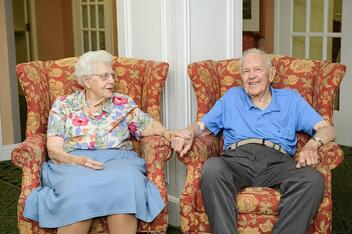 Just over 40 percent of seniors take at least five medications every day.
Just over 40 percent of seniors take at least five medications every day.
Not only that, but older adults suffer twice as many medical emergencies due to adverse drug events -- 177,000 trips to the emergency room annually for incidents ranging from disorientation to broken bones to heart failure.
While managing multiple medications can be challenging, you can help your aging loved one avoid these results with just three simple steps.
1. Establish a Routine
Most seniors thrive with a set routine. Your loved one probably eats breakfast at the same time every morning and brushes his teeth before bed every night. Pick an optimal time and incorporate the taking of prescription meds into the schedule.
It can also be helpful to use a calendar to mark off when medications are taken every day; this can prevent double doses for forgetful adults.
2. Get Organized
Set aside time at the beginning of each week to organize all medications into a pillbox. Choose one that is easy to open and close if your loved one suffers from dexterity problems due to arthritis. If necessary, use two different pillboxes for medications taken at different times of day, and be sure that each box is clearly labeled.
In order to avoid future confusion, save any accompanying labels, paperwork or instructions. Also, this National Institute of Health template is a handy resource for tracking important medication information.
3. Get Electronic
While placing sticky notes on fridges, bathroom mirrors and bedroom vanities can be useful, sometimes all the sticky notes in the world aren’t enough. Many of today's medical device alerts contain medication management tools for seniors.
If your aging loved one has entered the digital age, help him/her set a phone alarm, or look into the multitude of medication management mobile apps now available for smartphones and tablets.
For those less digitally inclined, a simple watch or alarm clock reminder may suffice.
While keeping track of medication takes some investment of time and energy, doing so is critical to the ongoing health and safety of your aging loved one.
Key Takeaways
- A variety of different reminders -- from sticky notes to electronic alarms -- can help ensure that your loved one doesn't miss a dose.
- Maintaining a written schedule and/or calendar can help prevent double doses.
- Reading labels is essential: check to make sure that each prescription is correct and that the contents are not expired.
- Staying organized and maintaining a routine are key components of successful medication management for seniors.

